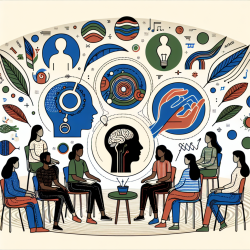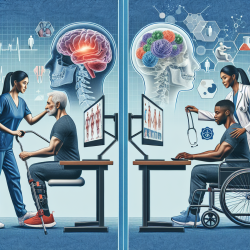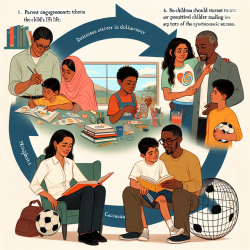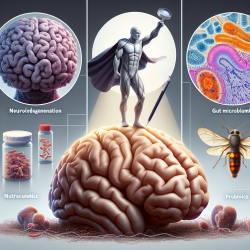In the evolving field of special education and therapy, practitioners continuously seek effective strategies to support young adults with learning disabilities, particularly in the realm of language disorders. The recent publication, "Adaptive Language Disorders of Young Adults with Learning Disabilities," offers valuable insights and practical approaches for educators and therapists aiming to enhance their therapeutic skills. This article aims to explore key takeaways from the research and encourage further exploration into adaptive language disorders to improve intervention outcomes.
Adaptive language disorders encompass a range of communication difficulties that young adults with learning disabilities may experience, impacting their ability to navigate various environments successfully. The research highlights the importance of understanding the multifaceted nature of these disorders, which requires a tailored approach to intervention. By delving into the specifics of the study, practitioners can glean strategies to bolster their therapeutic toolkit, ultimately fostering better communication skills among this population.
Understanding Adaptive Language Disorders
At the core of adaptive language disorders are challenges in the use and understanding of language in everyday contexts. These difficulties are not merely academic but extend to social, occupational, and environmental settings. The research emphasizes the necessity of recognizing the broad spectrum of adaptive language disorders, which can range from issues with language production and comprehension to problems with social use of language.
Strategies for Intervention
The study outlines several intervention strategies that can be particularly beneficial for young adults with adaptive language disorders:
- Individualized Educational Plans (IEPs): Tailoring educational plans to meet the specific needs of each individual, focusing on both strengths and areas of difficulty.
- Environmental Modifications: Adjusting learning and living environments to reduce barriers to effective communication.
- Use of Technology: Incorporating technology, such as speech-to-text software and communication apps, to support language development and usage.
- Social Skills Training: Implementing programs that specifically target the development of social communication skills, enhancing the ability to navigate interpersonal interactions successfully.
- Collaborative Approaches: Engaging a multidisciplinary team, including speech-language pathologists, educators, and occupational therapists, to provide comprehensive support.
Implications for Practice
The implications of this research for practitioners are profound. By integrating the outlined strategies into therapeutic practices, therapists can more effectively address the diverse needs of young adults with adaptive language disorders. This not only aids in the development of essential communication skills but also supports overall independence and quality of life.
Encouraging Further Research
While the study provides a solid foundation for understanding and intervening in adaptive language disorders among young adults with learning disabilities, it also underscores the need for ongoing research. Continuous exploration and innovation in therapeutic strategies are vital to keep pace with the evolving needs of this population. Practitioners are encouraged to engage in further research, whether through academic study, participation in professional development opportunities, or practical application in their work.
In conclusion, "Adaptive Language Disorders of Young Adults with Learning Disabilities" serves as a crucial resource for practitioners looking to enhance their therapeutic skills. By implementing the outcomes of the research and advocating for further exploration, therapists can make significant strides in supporting young adults with learning disabilities to overcome communication challenges. For those interested in delving deeper into the research, Adaptive Language Disorders of Young Adults with Learning Disabilities offers a comprehensive overview of adaptive language disorders and practical strategies for intervention.










